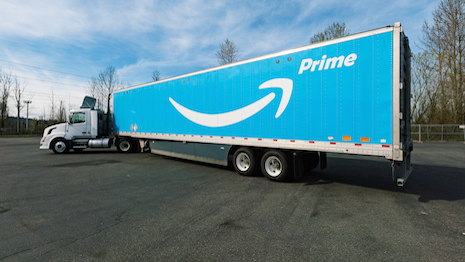 Luxury retailers will face less disruptive consequences than mass-market retailers. Image credit: Prada
Luxury retailers will face less disruptive consequences than mass-market retailers. Image credit: Prada
The Supreme Court recently overturned its original decision in the landmark Quill Corporation v. North Dakota case, dramatically changing the way retail will work online in the United States.
This new decision comes from South Dakota v. Wayfair, finalized just this month, which says that retailers must pay state sales tax on goods sold even if the company does not operate within that state physically. The decision has the potential to drastically change the way consumers shop, given new taxes they will have to pay on ecommerce purchases.
"As a result of last week’s U.S. Supreme Court decision, customers may be charged a sales tax by a large luxury retailer regardless of whether it's purchased online or in-store," said Natalie Kotlyar, national leader of retail and consumer products practice at BDO, New York. "However, cost-conscious consumers may wish to avoid delivery charges, and luxury retailers may see increased in-store foot traffic for premium products that would incur sales tax regardless whether purchased online or in-store."
Sales tax
For years, a longstanding Supreme Court decision has made online retailers exempt from state taxes if they do not have a physical presence in the state that the purchase was made.
For example, someone purchasing something from Amazon back when the company was based entirely in Seattle would not have to pay sales tax unless they lived in Washington.
But now, the Supreme Court’s decision in South Dakota v. Wayfair means that if a retailer ships goods to a consumer in another state, sales tax must still be paid.
The decision will have wide-reaching effects on retail. Image credit: U.S. Supreme Court
This will drastically alter how retailers operate.
For purely online retailers, this could have disastrous effects on their business model, potentially inflating the price of products and turning away customers. For retailers that have both bricks-and-mortar stores and ecommerce, the decision is slightly less disruptive as those retailers will have to think carefully about how they balance between online and offline shopping.
"To best determine their sales and use tax collection responsibilities, businesses must first start with a solid understanding of how their products are sold in different states—including those where they do not have a physical presence," said Jennifer Valdivia, partner at BDO’s retail and consumer products practice. "To do so, companies may need to quickly create or invest in a system that tracks interstate sales and the associated taxes collected.
"This process will ultimately help identify any sales and state income tax liabilities," she said.
New normal
While the ruling will mainly affect mass-market brands and retailers, luxury brands will not escape the consequences of this decision.
As luxury ecommerce adoption grows, brands are also expanding the number of products they are selling online, according to a new report from ContactLab.
“The Online Offer Dive & Pricing Landscape” report for fall/winter 2018 found that the top 18 brands in soft luxury goods grew their ecommerce product availability and viewability by 30 percent. While many luxury brands were hesitant to embrace ecommerce at first due to worries of tarnishing exclusivity, today even big-ticket items are being sold online (see story).
The effects on Amazon of this ruling are still unclear. Image credit: Amazon
As luxury brands embrace ecommerce, they will soon have to begin navigating the tricky waters of state taxes and how to apply them. The adjustment period will likely be difficult, but luxury brands have a bit more of a buffer thanks to the high level of disposable income of their primary customers.
"Consumers are attracted to online shopping due to not only the ease and convenience of a customizable experience, but also the tax-free nature of many online purchases, and half of all online shoppers consider sales tax before making a purchase," Ms. Kotlyar said. "As a result of the Wayfair ruling, ecommerce retailers may be required to charge sales tax on sales delivered to customers even if the retailer has no physical presence in the state where the goods are shipped.
"We may see consumers not place an order online if they see sales tax being charged," she said. "When it comes to retailers, much is still to be determined. States will be considering their own sales and use tax legislation similar to that of South Dakota.
"However, retailers are not likely to have a clear understanding of their current interstate and local sales, nor a system that tracks and collects the appropriate sales tax for each. Small retailers—some of which may lack the resources to immediately put such a system in place—could be adversely affected."

